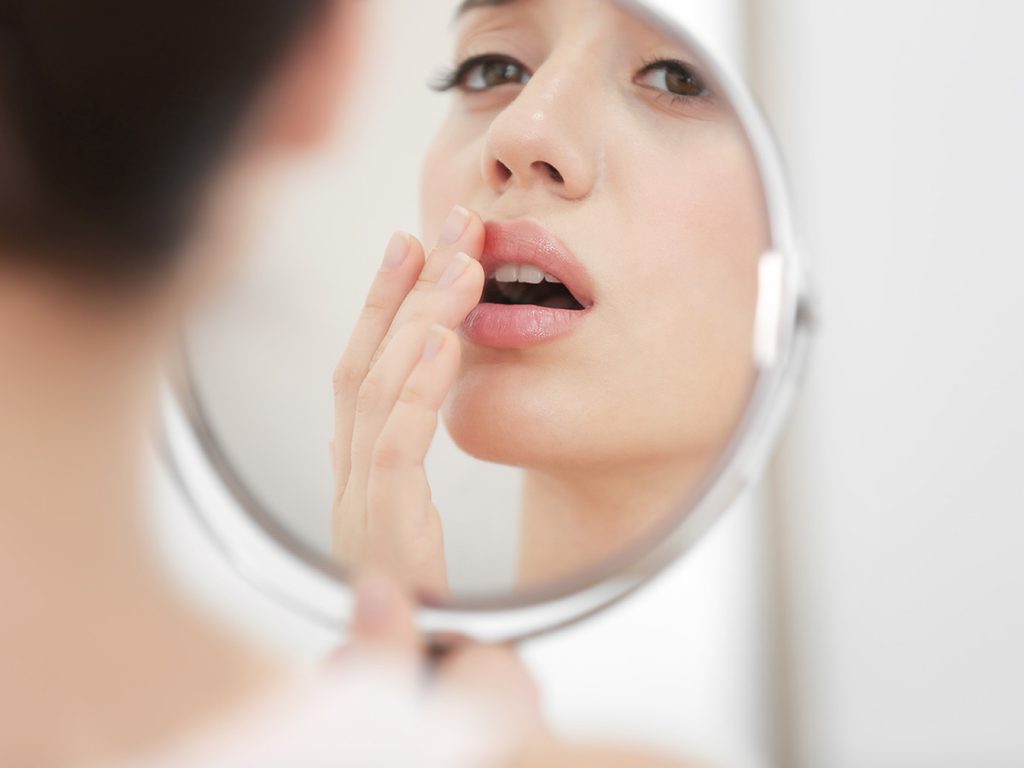How to Manage (and Prevent) a Cold Sore

Cold sores can be embarrassing, painful and infectious, but there are ways to severely lessen an outbreak.
Like an unwanted guest who shows up when you least expect them, cold sores are soul-sucking nuisances. Just ask anyone who deals with the periodic eruption of nasty red blisters around their mouth. And the emotional toll can be dramatic, despite the fact that sufferers are in good company: One in five Canadians gets cold sores. Still, a lot of people go into seclusion during an outbreak, says Rachael Manion, executive director of the Canadian Skin Patient Alliance.
For a more proactive approach, here’s your need-to-know and how-to-deal guide.
What are cold sores?
Cold sores are caused by the herpes simplex virus type 1 (HSV-1) — or, less commonly, the herpes simplex virus type 2 (HSV-2) — and they manifest as pus-filled blisters around the mouth. Their most annoying quality? They can feel like they take forever to heal, lasting for up to three weeks before the blisters crust over and fall off.
Triggers
While the sores are caused by the virus, what triggers an eruption can be different for each person, says Manion. Factors like hormonal shifts, an infection, lots of sun and wind exposure, and trauma to the lips can cause them to flare up, she says. Stress is also a trigger.
(Related: How Wellness Experts Cope with Coronavirus-Related Stress)
How to protect yourself and others
Cold sores are highly contagious. “This is a virus that can be contagious even when you’re not experiencing a cold sore,” she says. So if you’re feeling the telltale signs of one coming on — pain, itching or tingling around your mouth, also known as the prodromal stage — then kissing someone is not your best plan. Especially avoid newborns, who can get life-threateningly sick from the virus. It can also be spread through oral sex, for which Manion has two words: “Use condoms.” Or a dental dam. Or, the safest option, abstinence.
Be sure to wash your hands frequently too (which shouldn’t be a problem, given we’re living through a pandemic). And don’t share drinks, utensils or lip balm. Touching a cold sore and then rubbing your eye can lead to herpes simplex keratitis, a severe eye infection that requires treatment with prescription antiviral drops.
Treatment
“You really want to treat it as early as possible,” says Manion. Tackling the sore in those first few days can reduce the severity and prevent a red, angry, pus-filled nightmare. Your first line of attack might be the over-the-counter options available at the drugstore. If you’re getting cold sores more frequently — say, once a month — then make an appointment to see your doctor. There are topical and oral prescription antivirals that can help stave off major eruptions and speed up the healing process.
(Related: 9 Telehealth Services Available to Canadians)
Prevention
Protecting the skin around your mouth can also go a long way toward lessening outbreaks, says Manion. She suggests using emollient creams, such as petroleum jelly or ones containing allantoin, dimethicone, or glycerine, to keep the skin around your mouth moisturized. “These creams can prevent the skin from drying out and act as a mechanical barrier,” she says.
The key is to stay on top of your health — and to act as soon as symptoms appear. “A cold sore can really affect your life,” says Manion. “But treatments may prevent it from getting bad, and it will heal faster.” She also encourages people to talk about it with their friends and family, rather than going into hiding. This will help reduce the shame and stigma around a fairly common experience.




